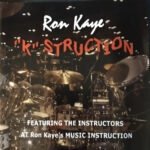Singing, you just do it, right? You either can or can’t, right? Well, I’ll tell you that once you begin to study the concept of using your voice, you soon realize many people are mistaken. Although we are born with a voice, it doesn’t always lend itself to beauty in all people. However, if you understand the dynamics of learning to sing properly, and put in a bit of practice, your voice can become a thing of beauty.Many folks don’t think of their voice as a “real” instrument.
Training your voice is a combination of physical and mental components that work together to form a pleasing sound.
There are many aspect of singing which require muscle memory and physical control of different parts of your body. There are also other aspects which require mental focus. For example, if I were to choose to sing in a more nasal tone ( something along the lines of Dolly Parton, Kelly Pickler, etc. ), it would require focusing mentally on sending the air forward through my nasal passages. So, physically I’m not lifting my soft palate, but mentally I would be focusing on vocalizing forward ( directing the air flow through the front of my face ). This combination of physical and mental elements produces a nasal tone. A good example of this type of technique used in a performance is the song “Stuck Like Glue” by Sugarland.
The mental and physical aspects are involved with good singing and matching pitch.
The most important part of singing well is matching pitch, or vocalizing the correct notes. In order to properly match pitch, you have to utilize the mental and physical aspects when you sing. You see, each song has a musical key that it is written in, and the notes which fit that particular key are limited. Therefore, you have to be able to stay in the range of the key in order to make the outcome pleasurable. To sing good, you must 1.) Focus and 2.) Support. Focusing your tone involves the physical control of your mouth, tongue, jaw, face, cheeks, soft palate, and your head. Support aids in getting the air through a breath and what you do with it once you get it. Basically, support involve things like breathing, posture, and core support.
There are some limitations you need to be aware of to make you the best you can be.
People often wonder, ( hopefully they know accurately ), to what category of singer does their voice best lends itself. Are you a Soprano, Alto, Tenor, or Bass? The proper assessment of your vocal part is a combination of Range, Tone, and Register Breaks. The benefit of knowing your voice part and range will help you choose songs which best suit your voice. The object here is to sing songs which are in keys which compliment your voice.
This information is just the beginning to your journey.
Hopefully, you can get an appreciation for these specific aspects of using your voice to make beautiful music. Once you realize what is involved when you sing, hopefully you can understand that, yes, everyone can “make a joyful noise unto the Lord,” but relating your voice as pleasurable to your fellow man may require a bit more effort. If you are interested in knowing more, or taking voice lessons with us please call (850) 453-9966. Keep on making beautiful music!
Written by Mrs. Kyle A. Kaye, B.M.E. & Ron Kaye



